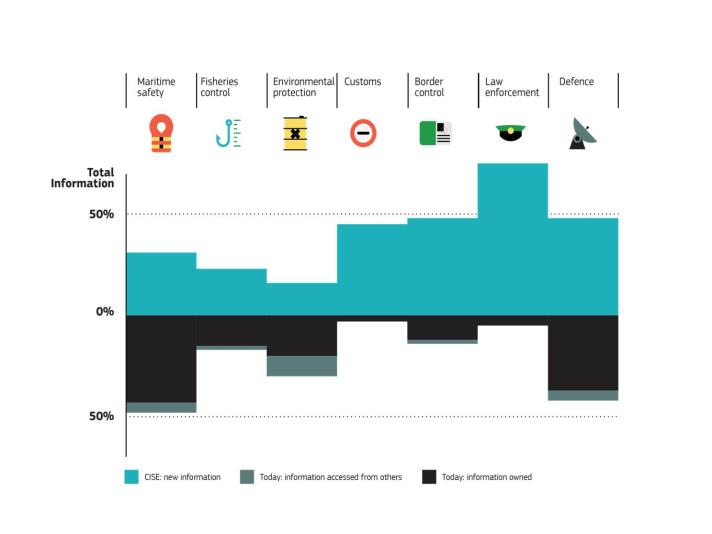- Theme
- Integrated Surveillance CISE
- Created on
- 14 July 2014
Europe depends on Safe, Secure and Clean seas. Over 40%[1] of Europe’s population and economic activity concentrated within 50 km of the coast. 80% of external EU trade and 40% of our internal trade is carried by sea. Thus, the security and safety of our maritime domain is paramount to all aspects of daily life, including the constant supply to our ports and harbours.
As we increasingly depend on the thousands of activities that happen daily at sea, we need a new and collaborative approach to ensuring that our people, our environments and our economic interests are duly protected.
Maritime threats are not restricted to coastal Member States: any person, substance or cargo can reach anywhere in the EU within short hours after having entered by sea, and, what is more, all Member States depend on safe commerce by sea and marine environmental services (among many others).
Maritime CISE will give Europe the enhanced knowledge, improved situational awareness and cooperative planning needed to ensure our coasts and sea lanes of communication are kept clear and open to legitimate activities. Maritime CISE means more prevention, and improved decisions and responses against threats such as cross border terrorism, piracy, environmental crimes, trafficking of people or substances, and illegal fishing. It will provide tangible benefits not only for European citizens, but also our neighbours and partners, contributing to better global governance.
Through more effective and efficient sharing of maritime information across borders and surveillance authorities, a noticeable and rapid reduction of such threats would be achieved.
Currently many different Member States, authorities and private businesses are engaged in gathering data about the maritime environment, but not one has a complete overview of the situation. By working together, this can be improved. For example: much of the data collected is duplicated in some way by one Member State or organisation; this figure is on average as high as 40%. Couple this with a lack of sharing and communicating across sectors and borders, and the duplication of costs and the need for Maritime CISE becomes apparent.
In this globalised era, with threats to shipping and borders ever evolving and changing, the need for awareness in the maritime domain, wherever it may be, is essential for the continued security and welfare of Europe. With Maritime CISE, our ability to recognise and deal with any threat is exponentially increased, and the costs for Member States reduced, allowing for more awareness, better decisions and faster responses in any given situation.
[1] http://epp.eurostat.ec.europa.eu/statistics_explained/index.php/Coastal_regions_-_population_statistics

